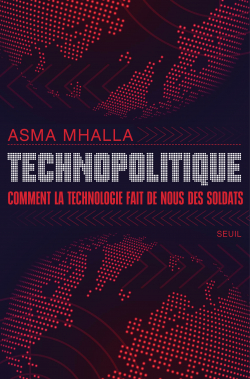Nicole de Brabandere (PhD, University of Arts, Linz) is an associate researcher at McGill University, Canada, and collaborator member at Hexagram. She is the editor of the forthcoming volume: Media, Practice and Theory: tracking emergent thresholds of experience, a collection of 10 chapters around concepts and practices of corporeality, articulation, and media, to be published by Vernon Press in spring, 2022. De Brabandere's PhD thesis was awarded the “Research Excellence Award” by the Austrian Federal Ministry of Education, Science and Research, an award which is given to the forty top doctoral dissertations in all of Austria, from all disciplines. De Brabandere has published numerous peer-reviewed articles on topics such as affect, creative practice, collaboration and media studies, and has presented talks, workshops and exhibitions in these topics at public and private venues internationally. In 2021 De Brabandere presented the short paper “Machine-Generated Portraits as Impersonal Gestures” for the International Symposium on Electronic Art (ISEA): Why Sentience? in 2021. The findings presented in this talk will be published in the experimental text “Co-composing the Perceptible across Affective, Painterly and Computational Generativities” for the special issue: Algo-rhythms, Kunstlicht Journal, Amsterdam, spring 2022.
Conference : Does painting machine-generated images open a spacetime of corporeal co-composition between humans and machines?
Friday 6 may 2022, 16h - 16h45 — Amphi orange
This talk presents findings detailing the emergent perceptibility of images created by the Generative Adversarial Network (GAN) of the website ThisPersonDoesNotExist.com. The machine-generated images sometimes achieve the photographic likeness of a person, but also make visible computational patterns that propose alternate organizations of form and ground, surface and substance, materiality and immateriality. What's more, images that initially appear to be objects signifying the real, upon close examination, have no single referential origin but are rather organized in strange configurations that traverse the photographic and computational. Through the careful study afforded by the process of painting these images, the appearance of referential figuration belies alternate generativities, where, for example, the appearance of depth-of-field or over-exposure is revealed as the substance of hair or cloth. While GAN renderings are generated in milliseconds, painting them offers an expanded temporality with which to engage their heterogeneous and transversal constitution. This in turn reconfigures the sense of facticity (and corresponding affects pitting subjects against objects) conjured by the photographic instant. The findings presented in this talk thus signal openings to engage and develop a felt sense of co-composition with the machine-generated image that traverses the human and machine.

Luc De Brabandere/5
2 notes
Résumé :
Dans son roman Le Guépard, Lampedusa raconte l’histoire d’un aristocrate sicilien du XIXe siècle qui assiste inquiet aux révolutions en marche. Lors d’une discussion avec son neveu, il lui dit « Si tu veux que les choses restent comme avant, alors il va falloir tout changer ». Avec la transformation digitale, nous sommes dans une situation comparable. Si nous voulons qu’un dirigeant puisse continuer à entreprendre, si nous voulons qu’un médecin continue à pouvoir so... >Voir plus
étiquettes
Ajouter des étiquettes
Que lire après Petite philosophie de la transformation digitaleVoir plus
critiques presse (1)
Le philosophe d'entreprise Luc de Brabandere analyse le basculement du monde matériel à celui de l'information. Un essai léger et profond à la fois.
Lire la critique sur le site : LesEchosLire un extrait
Videos de Luc De Brabandere (4)
Voir plusAjouter une vidéo
autres livres classés : managementVoir plus
Les plus populaires : Non-fiction
Voir plus
Les Dernières Actualités
Voir plus
Autres livres de Luc De Brabandere (22)
Voir plus
Quiz
Voir plus
Regardez_moi, de Gudule
Combien de temps dure l'histoire ?
du samedi 15 avril au mardi 30 mai
du lundi 17 avril au mercredi 31 mai
du lundi 1 mai au mercredi 31 mai
10 questions
56 lecteurs ont répondu
Thème : Regardez-moi de
GuduleCréer un quiz sur ce livre56 lecteurs ont répondu




































